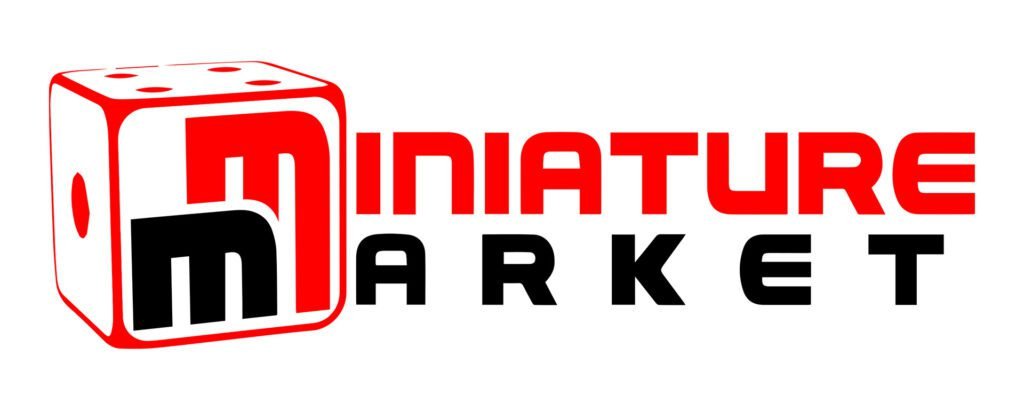
Today we’re diving into Brass: Birmingham. This is a board game from Roxley Games, a sequel to the classic Brass by Martin Wallace. It’s a heavy economic strategy game that builds on the original but with some new twists. So, let’s break it down – what it is, what’s good, what’s bad, & if you should pick it up. Let’s get into it.
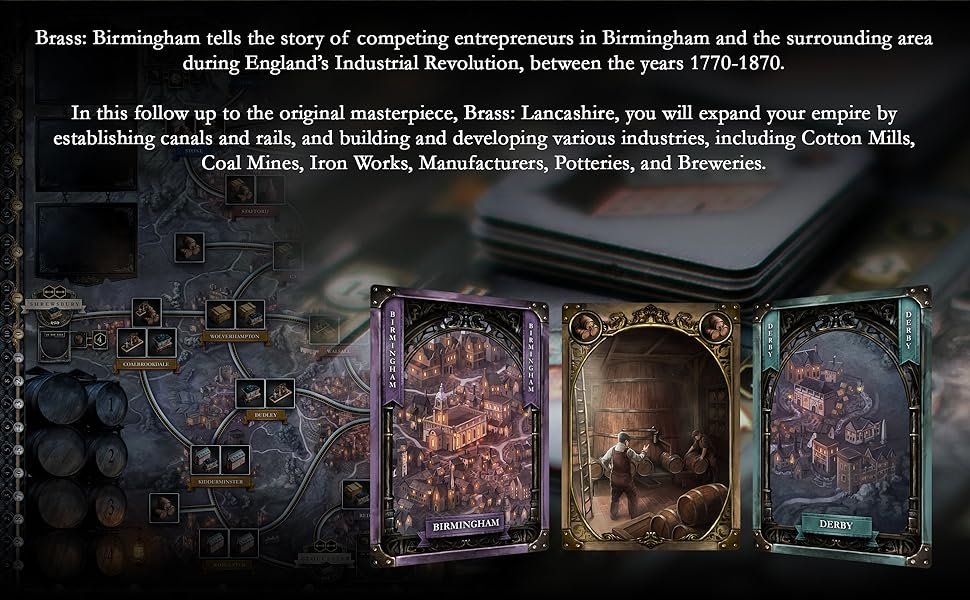
What It Is
Brass: Birmingham is a competitive economic strategy game for 2-4 players that typically takes about 60-120 minutes to play. Set during the Industrial Revolution in England, the game revolves around players building industries, establishing trade networks, & navigating the ever-changing market demands of coal, iron, & beer. This sequel adds new goods & resources, making it a fresh take on the original while retaining its deep strategic core.
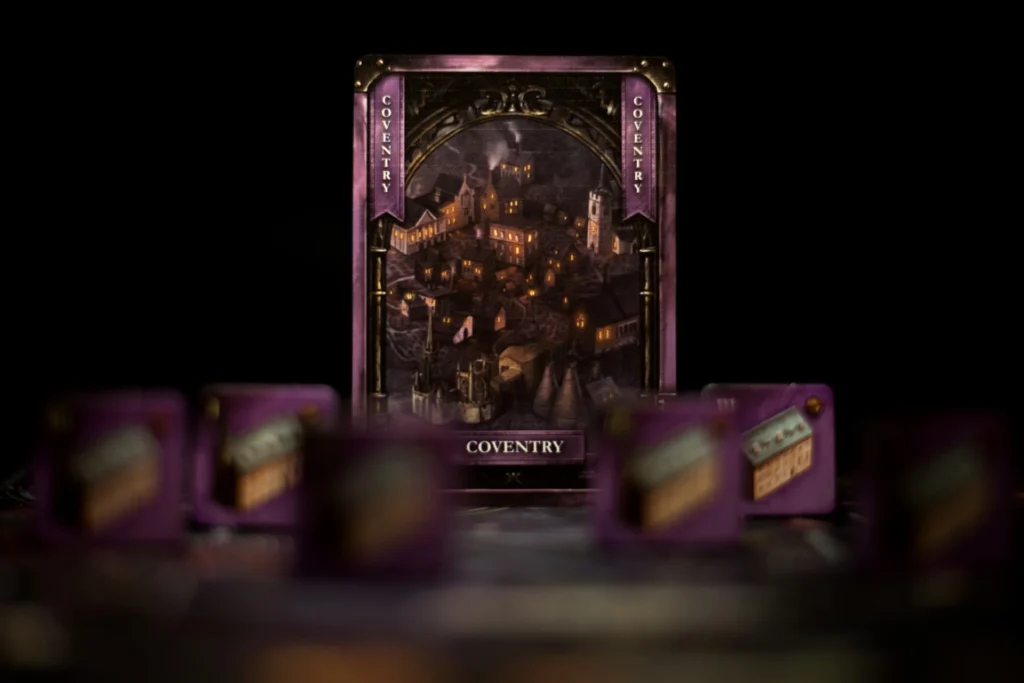
Gameplay Mechanics
Players assume the roles of ambitious entrepreneurs looking to build factories, establish trade routes, & dominate the local markets. The game unfolds over two distinct eras, the Canal Era & the Rail Era, each offering unique challenges & opportunities. With the goal of becoming the most successful industrialist, players must navigate the intricacies of resource management, strategic building, & cutthroat competition.
The game begins in the Canal Era, where players work to build their initial infrastructure. Each turn allows players to take actions like building factories, establishing trade routes, & selling goods. The key to success lies in efficiently managing your resources, including money, coal, iron, & beer. The game’s economy is dynamic, with players needing to carefully plan their moves to ensure they have the necessary resources to build & expand their network. Strategic placement of industries & connections is crucial, as the board can quickly become crowded with competitors.
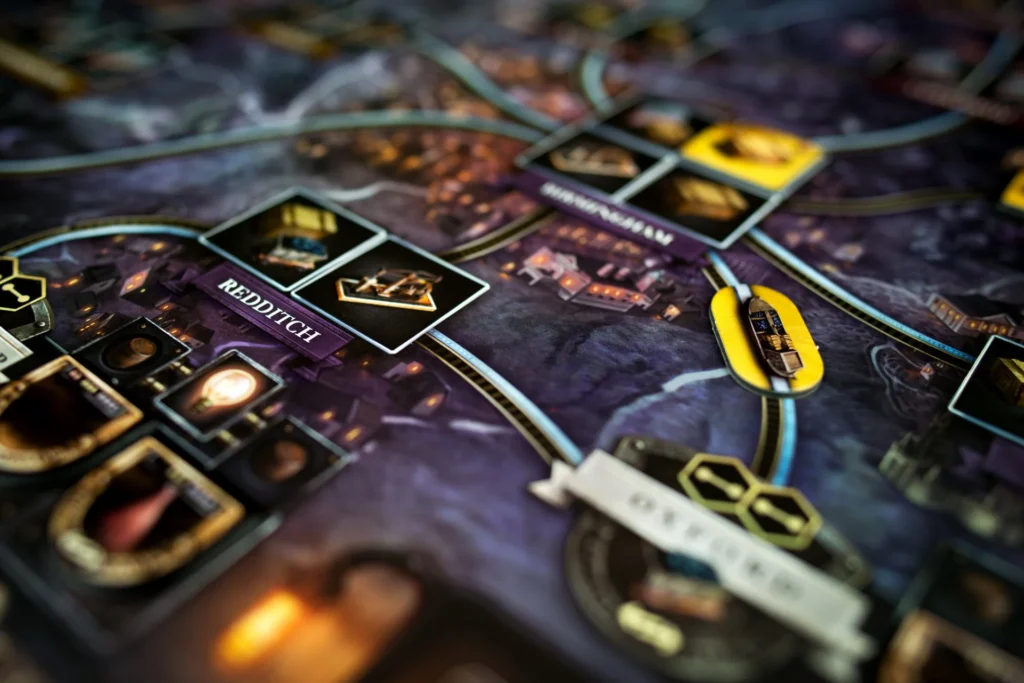
As players transition into the Rail Era, the stakes increase. The game introduces new complexities, such as the ability to build multiple industries in the same city & the necessity of using railroads instead of canals. This era demands more advanced planning & resource management, as players must contend with higher costs & more aggressive competition. The Rail Era also allows for the expansion of networks, giving players the chance to link distant cities & create powerful trade routes that can generate significant points.
A standout feature of “Brass: Birmingham” is its shared resource pool. Players can use resources produced by their opponents, which adds a layer of interaction & tension. For example, if an opponent builds a coal mine, you can use their coal for free if it’s connected to your network. This creates opportunities for clever plays, such as building industries that produce resources in high demand, forcing your opponents to help you flip your tiles & score points.
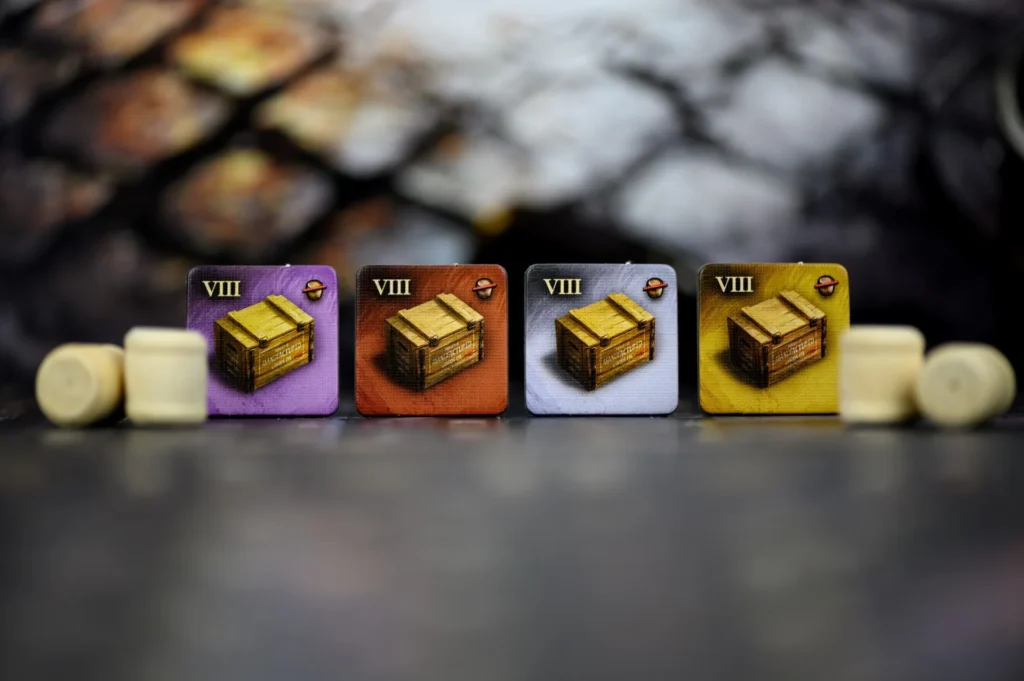
The game also introduces the concept of beer as a resource, which is essential for selling goods. Beer can be acquired from merchant tiles or breweries, & it adds an interesting twist to the game’s economy. Timing your sales actions to take advantage of available beer can be crucial, as selling goods without the necessary beer is impossible. This mechanic encourages players to think carefully about their actions & consider how best to use the resources on the board.
Another layer of strategy comes from the game’s income & loan system. Players can take out loans to gain quick cash, but doing so lowers their income, which affects their ability to generate money each round. Balancing the need for immediate funds with the long-term impact on income is a constant challenge. The game’s development action also allows players to skip over lower-level industries, potentially giving them access to more lucrative options sooner.
Finally, “Brass: Birmingham” concludes with a scoring phase that rewards players for their network connections & successful industries. The game’s scoring system is nuanced, with points awarded for both link bonuses & flipped industry tiles. This ensures that players must balance short-term gains with long-term strategy, as only the most efficiently managed networks will come out on top.

The Components
Straight out of the box, the production quality of Brass: Birmingham is exceptional. The artwork brings the Industrial Revolution to life with a dark, moody aesthetic that perfectly complements the game’s theme. The board is double-sided, offering both a day & night version, & the attention to detail is impressive.
The components include beautifully crafted wooden pieces representing coal, iron, & beer, as well as stunningly illustrated player boards & cards. The symbology might be a bit small for some, but it’s still clear & functional. The tactile nature of the components enhances the overall experience, making each game feel like a journey back in time. However, one minor gripe is that the cards representing cities could have included a map indicator to make location identification easier.
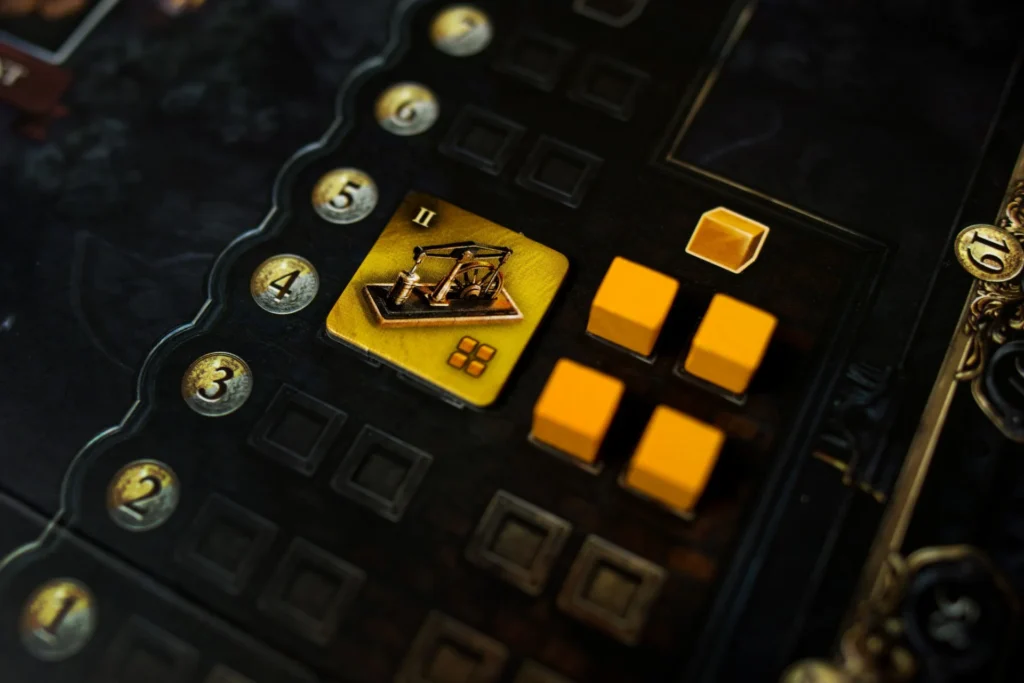
The Good
Let’s start with the production value. Brass: Birmingham is a masterclass in how aesthetics can enhance a board game. The artwork, components, & overall design create an immersive experience that pulls you into the world of the Industrial Revolution. It’s clear this is a labor of love, & the game’s visual & tactile appeal is top-notch.
In terms of gameplay, Brass: Birmingham shines with its depth & strategic richness. The addition of beer as a resource adds a new layer of complexity that feels both challenging & rewarding. The dynamic market system ensures that no two games will play out the same way, & the variability in how goods are distributed across the map keeps the game fresh & engaging.
The game also does a fantastic job of offering meaningful choices. Whether you’re deciding where to build, when to sell goods, or how to outmaneuver your opponents, every decision feels impactful. The ability to specialize in certain industries or strategies adds replayability & allows different playstyles to flourish.

The Bad
However, Brass: Birmingham is not without its challenges. The game is complex, & while the rulebook is well-organized & clear, the game itself can be difficult to fully grasp, especially for new players. There’s a steep learning curve, & it may take several playthroughs to understand the intricacies of the gameplay. This isn’t a game you can casually introduce on a game night with casual players; it demands focus & strategic thinking.
Additionally, the game can be punishing. If you make a mistake early on, it can be difficult to recover, leading to a potentially frustrating experience, especially for less experienced players. The game’s length, combined with its complexity, might also be a turn-off for those looking for a lighter, quicker experience.
Some players might also find the requirement to take loans & manage debt unappealing. While it’s a central mechanic that adds to the strategic depth of the game, the constant need to go into debt to fuel your industrial empire can be stressful, especially for those who prefer less punishing gameplay.
Finally, the game’s strategic nature may feel restrictive to players who prefer more tactical, on-the-fly decision-making. Brass: Birmingham requires long-term planning & careful consideration of your actions several turns in advance. This can lead to moments where you feel trapped by your previous decisions, with limited options for recovery, which might not appeal to everyone.
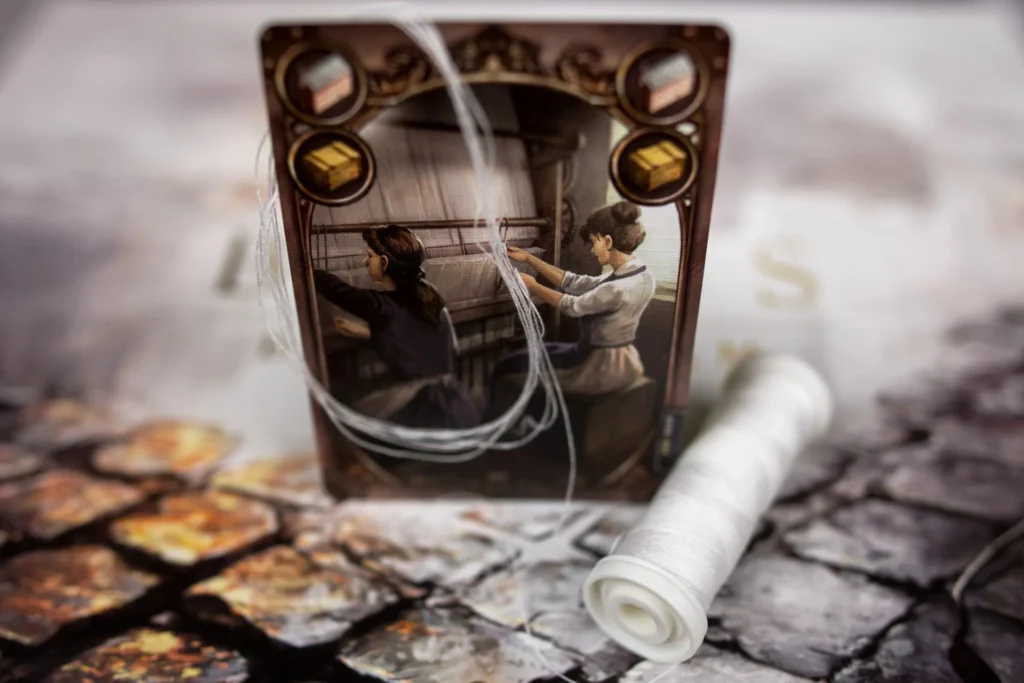
The Verdict
So, should you buy Brass: Birmingham? If you’re a fan of heavy strategy games & enjoy deep economic simulations, this game is a must-have. It’s a beautifully designed, richly thematic experience that rewards careful planning & strategic foresight. The addition of new mechanics & the overall production quality make it a worthy successor to the original Brass.
For those who enjoy games that challenge their strategic thinking & offer a high level of replayability, Brass: Birmingham is an excellent choice. However, if you’re someone who prefers lighter games, or if you find the idea of a game that feels more like work than play unappealing, this might not be the game for you.

Final Thoughts
Brass: Birmingham is one of those games that has managed to stay relevant over the years, even with the influx of newer and flashier titles. For me, it’s a game that stands out because of its depth, strategic complexity, and how it rewards repeated plays. But let’s break it down in a way that really captures what this game is all about.
First off, Brass: Birmingham is a game that’s not exactly easy to learn, but it’s definitely worth the effort. The first time you play, it might feel overwhelming with all the rules, the cards, and the network building. But trust me, once you get the hang of it, you’ll start to see the beauty in its mechanics. This game is all about building your industrial empire, and that’s going to take some serious brainpower. But the payoff is huge if you’re willing to put in the time. I’ve found that after a couple of games, you really start to understand how the different elements interact, and from there, it becomes a game of refining your strategy.
Now, let’s talk about the production quality because that’s something that really impressed me. The original Brass wasn’t exactly a looker, but Roxley Games has done a phenomenal job with this reprint. The components are top-notch, and the artwork is absolutely stunning. It’s one of those games that just looks great on the table, and that’s something I always appreciate. Even the option to play with a day or night board is a neat touch that adds to the overall experience. It’s clear that a lot of thought went into making this game not just a strategic gem, but also a visual one.
One of the things I love about Brass: Birmingham is the dynamic strategy it demands. You can’t just rely on one plan; you have to adapt constantly. The card draw adds a layer of luck, but it’s the kind of luck you can work with. The wild cards are a nice addition because they give you a way out if the cards aren’t in your favor. It keeps the game from feeling too punishing and allows for a bit of flexibility. I’ve found that every game of Brass is different because of this, and that’s what keeps me coming back. It’s a game where you’re constantly learning, adjusting, and improving, and I love that challenge.
However, it’s not all sunshine and rainbows. Brass: Birmingham can feel like a grind, especially if you’re not into heavy, thinky games. There are moments where it feels like you’re working through a puzzle rather than playing a game, and that might not be for everyone. I know there are people who thrive on that kind of mental workout, but I also get that it’s not everyone’s cup of tea. If you’re looking for something light and breezy, this isn’t it. But if you enjoy a game that makes you think several steps ahead, then Brass will likely be a hit for you.
I also have to mention the rulebook. While it does a decent job of explaining the game, there are still some areas where it feels unclear or overly complex. It’s the kind of game where you might need to reference the rules multiple times during your first few plays, and that can slow things down. But once you push past that initial learning curve, the game starts to flow much more smoothly. Just be prepared for a bit of a learning period, especially if you’re teaching it to new players.
In the end, Brass: Birmingham is a game that I respect immensely. It’s not one I’ll pull out for every game night, but when I’m in the mood for something with a bit more meat, it’s one of my top choices. It’s a game that rewards investment, both in terms of time and mental energy. If you’re willing to dive in, there’s a lot of enjoyment to be had here. For those who enjoy a deep, strategic experience with beautiful production values, Brass: Birmingham is absolutely worth your time. Just know that it’s a game that demands a lot from its players, but if you’re up for the challenge, it’s one that can be incredibly rewarding.
Purchase Options


At no extra cost to you, The Board Game Site may receive revenue from affiliate and advertising partnerships for sharing this content and from purchases through links.



